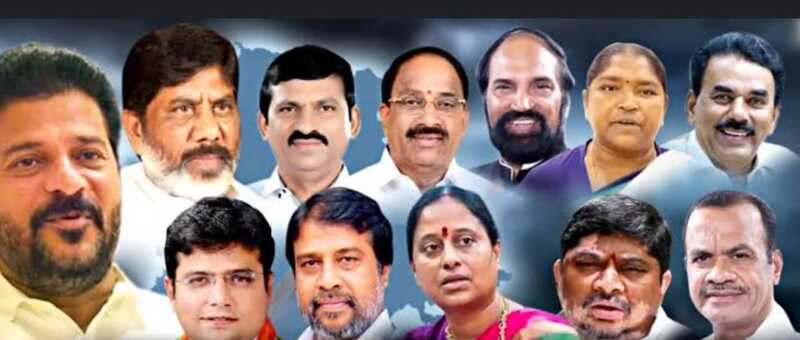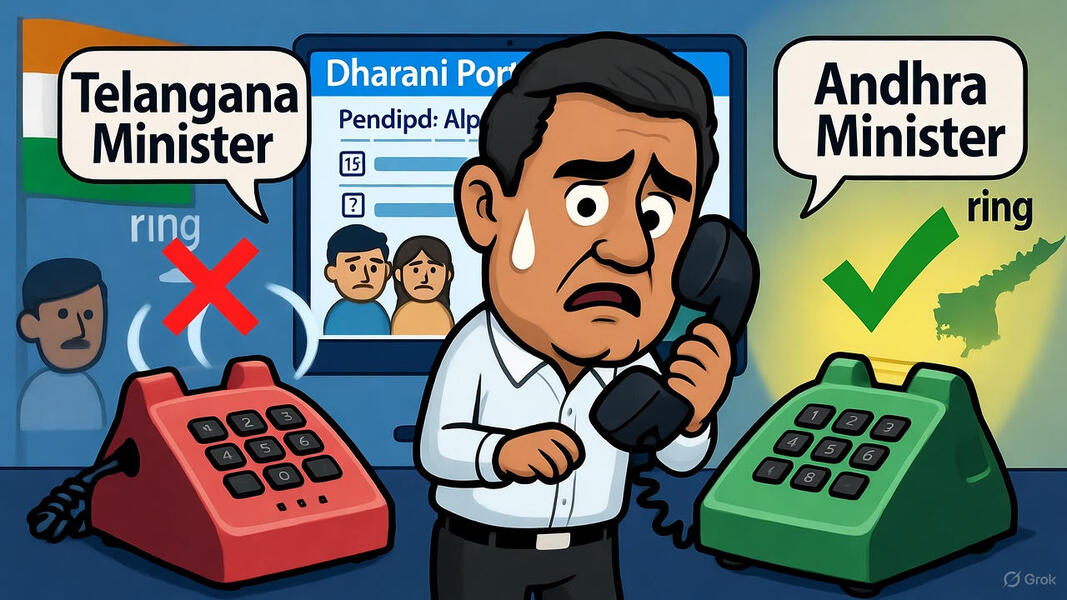Article Today, Hyderabad:
Even after promising social justice and caste-based representation, the Telangana cabinet continues to be dominated by upper castes, sparking widespread criticism from Bahujan communities. While the Congress government claims to stand for inclusion, the ground reality reveals an imbalance that contradicts both population data and pre-election promises.
Out of the current 12-member Telangana cabinet, including the Chief Minister, seven ministers belong to upper-caste communities. Only two are from the SC community, two from BCs, and one from STs. According to the 2025 caste census data, BCs make up 56.33% of the state’s population, SCs 17.43%, STs 10.45%, and minorities 12.56%. This makes the overwhelming presence of upper castes in the cabinet starkly disproportionate to their population size, leading to strong criticism from marginalized groups and activists.
Push for Cabinet Berths by Upper Caste Leaders Again…
With the upcoming cabinet expansion, upper-caste leaders are once again lobbying for ministerial positions. Congress leadership is reportedly under pressure from senior leaders to allot more berths to upper-caste aspirants, further sidelining Bahujan representation. Critics say this reflects a broader strategy to expand upper-caste dominance rather than fulfill promises of social justice.
Debate over Komatireddy Rajgopal Reddy’s Cabinet Claim
One name being widely discussed in political circles and on social media is Komatireddy Rajgopal Reddy. His brother, Komatireddy Venkat Reddy, is already serving as a cabinet minister. Rajgopal Reddy, who joined Congress from BJP in 2022, is said to be lobbying for a cabinet post. However, many question the ethics of awarding cabinet positions to two members from the same family. Political observers argue that Rajgopal Reddy gained more personally from his party switch than the party did politically. Such favoritism could send the wrong message and deepen the perception of elitism in the Congress party.
BC Leaders Side-lined in Nizamabad
In Nizamabad district, there is pressure to include Sudarshan Reddy, yet another upper-caste leader, in the cabinet. Meanwhile, senior BC leaders like Mahesh Kumar Goud, Aadi Srinivas, and Srihari Mudiraj—who have been loyal to the party for decades—are being overlooked. This has caused deep discontent among BC leaders, who argue that continuing to reward upper-caste leaders at the expense of long-serving BC workers violates the very principle of social justice. They are now demanding that at least 50% of cabinet positions be reserved for BCs, in line with their population share.
Caste Census Data Used for Votes, Not Representation?
During the 2023 elections, Congress promised a caste census and fair representation for SCs, STs, and BCs. The 2024 caste census surveyed 3.54 crore people and revealed that BCs alone constitute nearly 2 crore of the population. Based on this, the government announced 42% reservation for BCs in local body elections. However, this commitment has not been reflected in the cabinet formation. Critics now accuse the party of using caste census data purely for electoral gain without implementing real structural change.
Zero Minority Representation in the Cabinet
Muslims make up 12.56% of Telangana’s population, yet no minority leader has been given a place in the cabinet. Although Congress’s Muslim candidates didn’t win in 2023, there are discussions to nominate Feroz Khan—who lost from Nampally constituency—as an MLC and possibly induct him into the cabinet. However, this symbolic move alone is unlikely to convince minorities that they have genuine representation in the state’s governance. The Congress slogan “Jitni Aabadi, Utna Haq” (Right proportional to population), strongly promoted by Rahul Gandhi, appears hollow in Telangana’s context.
Bahujan Leaders Question Faith in Upper-Caste Dominated Parties
Political analysts say it is a mistake for Bahujans to place faith in parties traditionally controlled by upper castes—like Congress, BRS, and BJP. These parties, they argue, continue to treat the 85% Bahujan majority as mere vote banks. Despite their population strength, Bahujans are routinely denied their fair share in political power. Scholars and thinkers from Bahujan communities are urging people to stop begging for representation from such parties and instead demand structural change. They believe true transformation will come only when Bahujans assert their rights independently rather than rely on dominant caste-led platforms.
In conclusion, the ongoing cabinet dynamics in Telangana reflect deeper social and political inequalities. Unless these issues are addressed with genuine intent and proportional representation, the promise of social justice will remain just another unfulfilled slogan.



